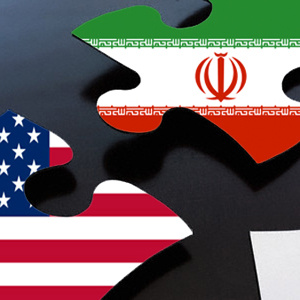Washington’s Strategic Blunder

Now, apparently, the United States prefers to gear itself up for a tougher face-off, despite Tehran’s goodwill gestures and its actual measures towards developing an atmosphere of constructive interaction.
Washington appears to be miscalculating. In spite of the potential Ahmadinejad’s administration has shown for interaction, Washington prefers to take the lead in the nuclear game and impose its decisions on Iran. An enduring fact, though, is that the Americans are unfamiliar with the dynamics of decision-making in Iranian politics. For Iranians, during recent years, nuclear technology has transcended mere know-how. It has now become a national symbol and is considered an inalienable right. Believing that the Iranian political elite will simply yield to U.S.-demands for a nuclear trade-off, and will consent to quietly exit the nuclear club, is a colossal mistake.
The U.S. Congress has decided to delay voting on a petroleum sanctions bill to allow the United Nations and the European Union to pursue their planned actions vis-à-vis Iran. Fine. Iranians are used to parallel pressures, particularly U.S. sanction-based punitive measures witnessed in the post-revolution years. Psychological warfare and Washington’s efforts to forge an all-inclusive consensus against Iran’s nuclear program –a part of its so-called ‘multilateralism’ strategy- are nothing new for Tehran.
The Obama administration is now aiming to re-orientate its global strategy. Insistence on the imposition of a new round of sanctions against Iran, signing the START (Strategic Arms Reduction Treaty) II with Moscow, suggesting NPT reforms, and the release of the Nuclear Posture Review (NPR) are all components of the new U.S. strategy.
Nevertheless, there are serious doubts about the U.S. ability to influence Iran’s nuclear program in its desired way. Washington’s attempt to force Iran to cease (or even reverse) its nuclear technological progress is a strategic blunder that will only complicate the situation, limit diplomatic options, and tarnish the image of multilateralism.
Even now, the ultimate outcome of the Moscow-Washington deal is not clear, nor is the certainty that the European Union and China will maintain their current positions in near future. The global strategy of rising powers -India, Brazil, Turkey, and Iran- is also a key factor that will influence the future of international developments. America’s continual rendering of Iran’s nuclear program into a global security concern will only add more bricks and mortar to the 30-year old wall of distrust between Iran and the United States. And an isolation-aimed approach toward Iran is fruitless—certainly the least effective way to treat a country with a great civilization located in a critical geopolitical region.
Farhad Koleini is strategic affairs analyst.

